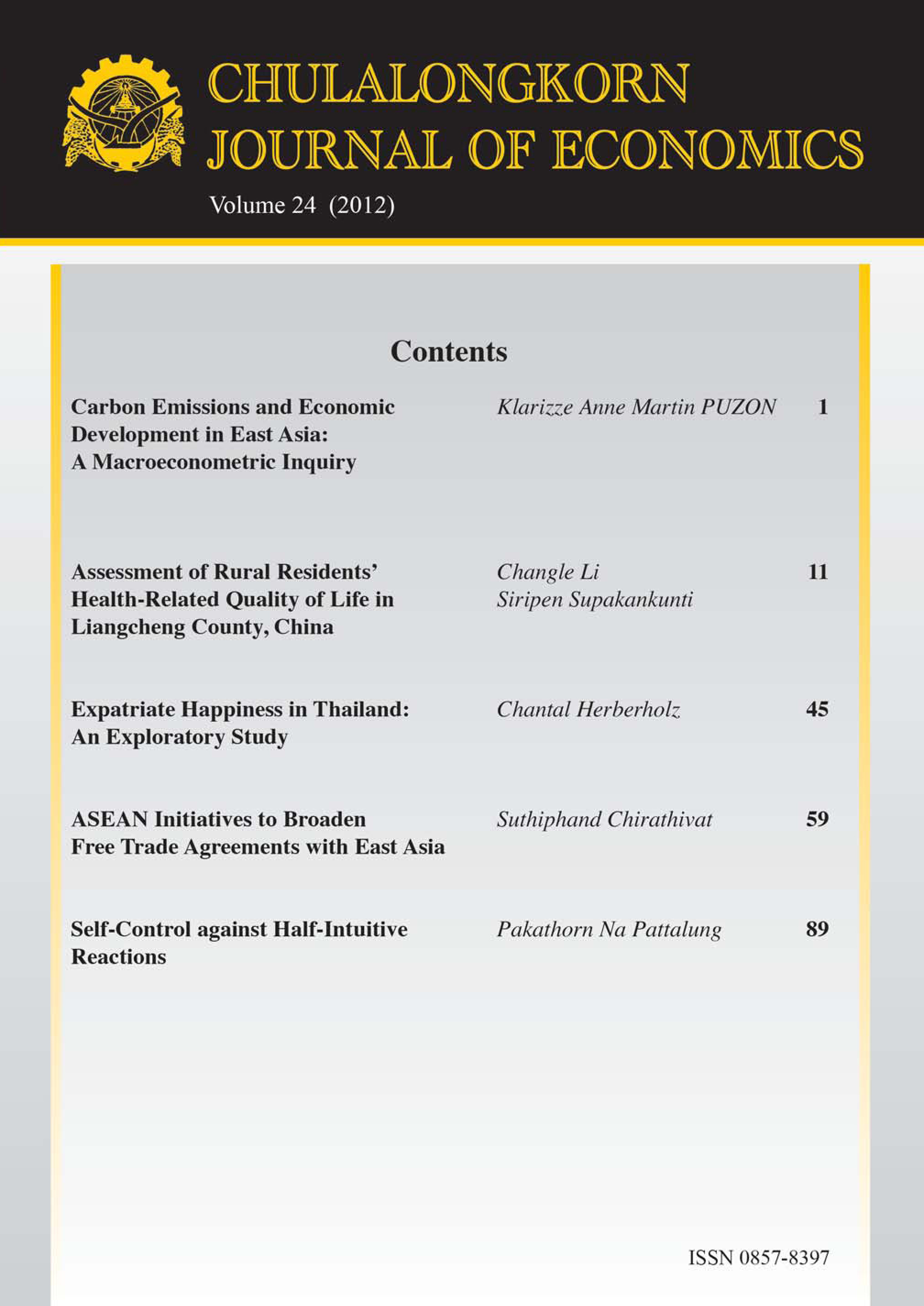Testing Happiness Framework Based on Western and Eastern Thoughts: A Case Study of Bangkok
Keywords:
Happiness, Life-satisfaction, Experience Utility, Buddhist EconomicsAbstract
Human happiness cannot be explained by material achievements only, since happiness is complex and individually different. A vital goal for this study is to find happiness patterns among Thais by synthesizing both western and eastern concepts of happiness because it still does not have the traditional happiness model, especially the model concerning cultural constraint. Therefore, this study adapts Experience Utility in terms of analyzing aspiration, adaptation, social comparison and Buddhist Economics while considering among man, mind and the environment in an analytical framework that may be more suitable to Thai culture and more interpretative of human happiness. From the framework with subjective concern, one finding of this study is the relationship between attitudes regarding morals, and self-immunity and human feeling happy. Therefore, the policymaker should concern on people’s feeling security in their lives, and create the policy mechanism to support people’s living happy under the good environment and to practice people’s feeling self-sufficiency and self-reliance.
Downloads
Published
How to Cite
Issue
Section
License
The submission of a manuscript implies that the paper is an original work and has not been published elsewhere. The author(s) authorize the journal to reproduce or distribute the paper in printed or other electronic forms.







